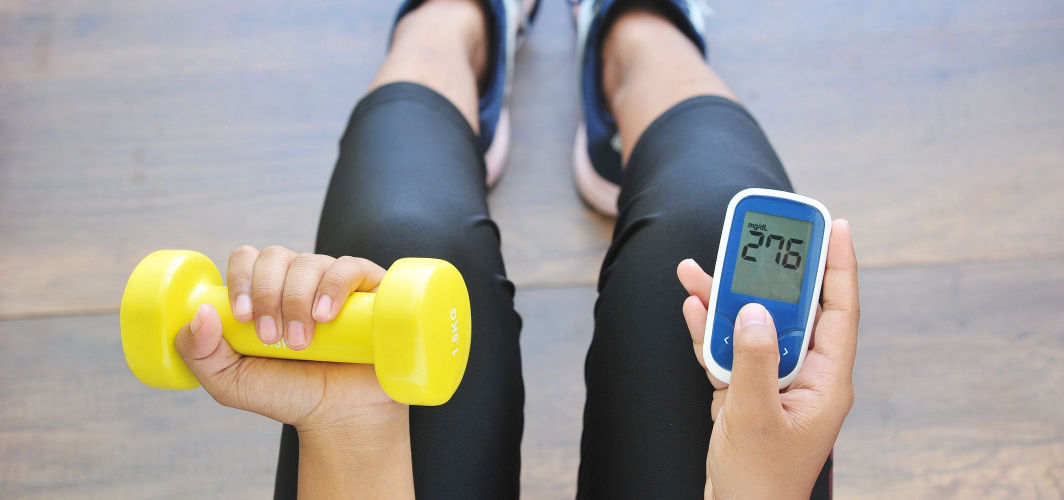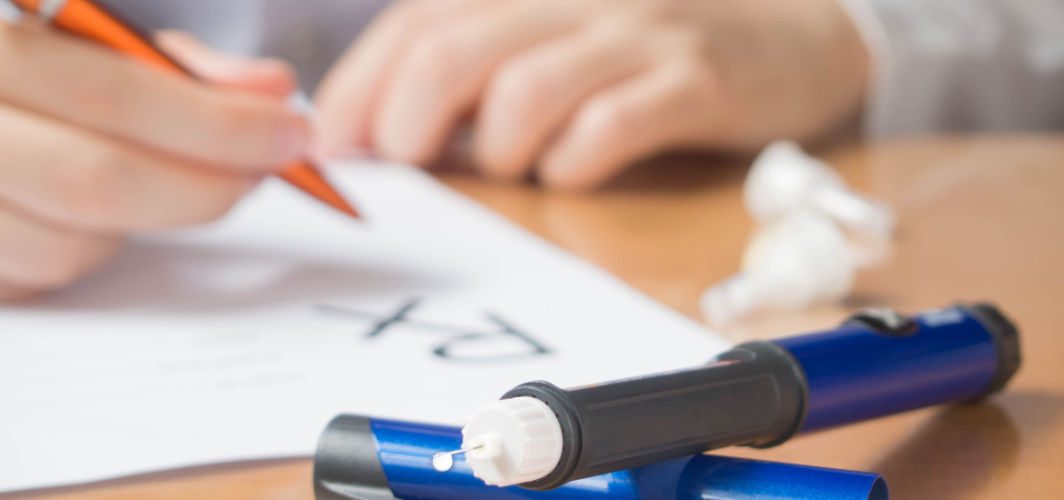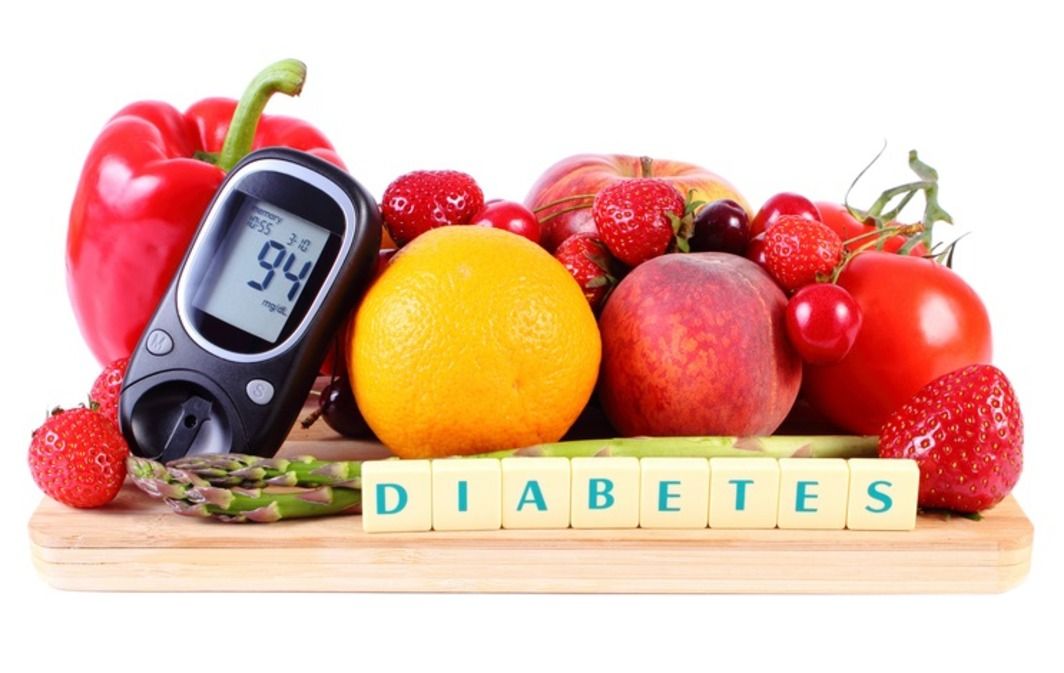Diabetes Management
Can Diabetes Affect Your Ability to Exercise?
3 min read
By Apollo 24|7, Published on - 31 October 2023, Updated on - 22 February 2024
Share this article
0
0 like

Exercise offers multiple benefits to maintain physical and mental health. However, individuals with diabetes need to be careful while exercising. The condition might affect a person’s ability to exercise, let’s understand how an individual can navigate these challenges effectively:
Impact of Diabetes on Exercise
It is crucial to strike a balance while exercising to prevent either low (hypoglycemia) or high (hyperglycemia) levels of blood sugar. Additionally, some individuals with diabetes face challenges like foot-related problems (nerve-related issues, foot ulcers etc), affecting their ability to perform certain workouts.
- Hypoglycemia: Exercise can cause blood sugar levels to drop, especially if insulin or certain diabetes medications are involved. Symptoms of hypoglycemia can include dizziness, shakiness, confusion, and even loss of consciousness.
- Hyperglycemia: Blood sugar levels may rise during high-intensity workouts. In this case, instead of improving insulin sensitivity, you may feel dehydration and fatigue.
- Foot problems: Foot-related issues like foot ulcers or neuropathy can affect your ability to do exercises especially weight-bearing activities like jogging.
Managing Diabetes for Safe Exercise
While diabetes can pose challenges to exercise, it is essential to understand that regular physical activity remains highly beneficial for those with diabetes. To safely enjoy the advantages of exercise:
- Consult a Healthcare Provider: Before starting any exercise program, consult with a healthcare provider, preferably one experienced in diabetes management. They can help develop an exercise plan that aligns with your specific diabetes type and individual needs.
- Monitor Blood Sugar: Regularly monitor your blood sugar levels, before, during and after exercise. Doing this regularly will help you identify certain patterns in your sugar levels in response to different types of activities. This can help you understand how your body responds to different activities and adjust your diabetes management accordingly.
- Stay Hydrated: Proper hydration is essential. Dehydration can lead to elevated blood sugar levels, so drink water regularly during exercise.
- Carry Snacks: For activities with a higher risk of hypoglycemia, carry fast-acting carbohydrates such as glucose tablets, glucose powder, honey or juice to raise your blood sugar if needed.
- Choose Suitable Exercises: Select exercises that are safe and pleasant. Avoid weight-bearing exercises if you have foot-related issues.
- Set Realistic Goals: Recognise your limits and set achievable fitness goals. Gradual progress is often the best approach.
- Wear Proper Footwear: Always wear comfortable footwear and protect your feet especially if you have diabetic foot or any other foot-related issues like peripheral neuropathy.
Warning Signs to Lookout for
During a workout, it is crucial to monitor your blood sugar levels, aiming to keep them within a healthy range, typically below 100 mg/dl, to ensure safe exercise. If your blood sugar levels rise to 250 mg/dl or above, it's advisable to stop the workout. Additionally, you must be vigilant for warning signs such as chest pain, chest discomfort, or difficulty in breathing.
If you face joint pain, headaches, lightheadedness, dizziness, weakness in any limbs, or loss of sensation in any part of your body, it is recommended to stop working out.
Conclusion
Diabetes may affect a person's ability to exercise, but with careful planning, monitoring, and guidance from healthcare professionals, individuals with diabetes can enjoy the many benefits of exercise while managing their diabetes safely.
Diabetes Management
Consult Top Diabetologists
View AllLeave Comment
Recommended for you

Diabetes Management
Five Essential Tips for Diabetes Self-Management
Effective diabetes management requires regular blood sugar monitoring, a balanced diet, exercise, medication adherence, and stress management. These steps empower individuals with Type 1, Type 2, or Gestational Diabetes to lead healthier lives with reduced complications. Dedication to these measures yields improved health outcomes, making it a worthwhile effort.
.jpg?tr=q-80)
Diabetes Management
The Role of Algae Supplements in Diabetes Nutrition
Algae supplements could potentially revolutionize the way we manage diabetes. They work on multiple fronts - from regulating blood glucose levels to impacting gut health. However, as research unravels its full potential, make an active choice towards better diabetes management today with lifestyle changes and dedicated support like the Apollo Super 6 program.

Diabetes Management
Taming Your Sweet Tooth: A Diabetic's Guide to Healthy Eating
Effective diabetes management is all about making informed food choices. Incorporate whole grains, lean proteins, and non-starchy vegetables into your meals. Avoid sugary drinks, high-fat foods and processed meats. Be mindful while consuming fruits considering their natural sugar content - choose low glycemic index fruits like berries and peaches.
Subscribe
Sign up for our free Health Library Daily Newsletter
Get doctor-approved health tips, news, and more.
Visual Stories

8 Fruits That are Incredibly Healthy for Diabetes
Tap to continue exploring
Recommended for you

Diabetes Management
Five Essential Tips for Diabetes Self-Management
Effective diabetes management requires regular blood sugar monitoring, a balanced diet, exercise, medication adherence, and stress management. These steps empower individuals with Type 1, Type 2, or Gestational Diabetes to lead healthier lives with reduced complications. Dedication to these measures yields improved health outcomes, making it a worthwhile effort.
.jpg?tr=q-80)
Diabetes Management
The Role of Algae Supplements in Diabetes Nutrition
Algae supplements could potentially revolutionize the way we manage diabetes. They work on multiple fronts - from regulating blood glucose levels to impacting gut health. However, as research unravels its full potential, make an active choice towards better diabetes management today with lifestyle changes and dedicated support like the Apollo Super 6 program.

Diabetes Management
Taming Your Sweet Tooth: A Diabetic's Guide to Healthy Eating
Effective diabetes management is all about making informed food choices. Incorporate whole grains, lean proteins, and non-starchy vegetables into your meals. Avoid sugary drinks, high-fat foods and processed meats. Be mindful while consuming fruits considering their natural sugar content - choose low glycemic index fruits like berries and peaches.


